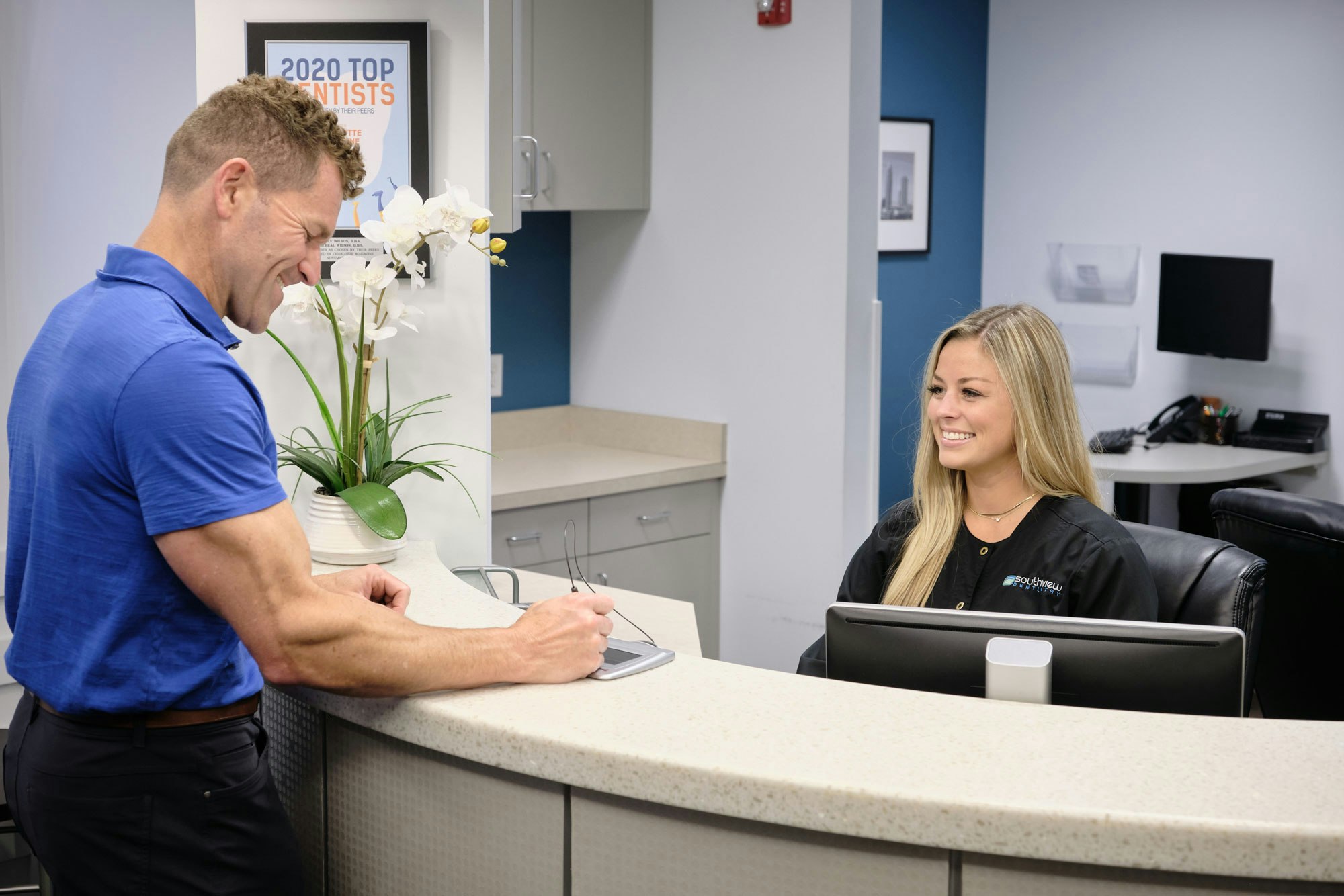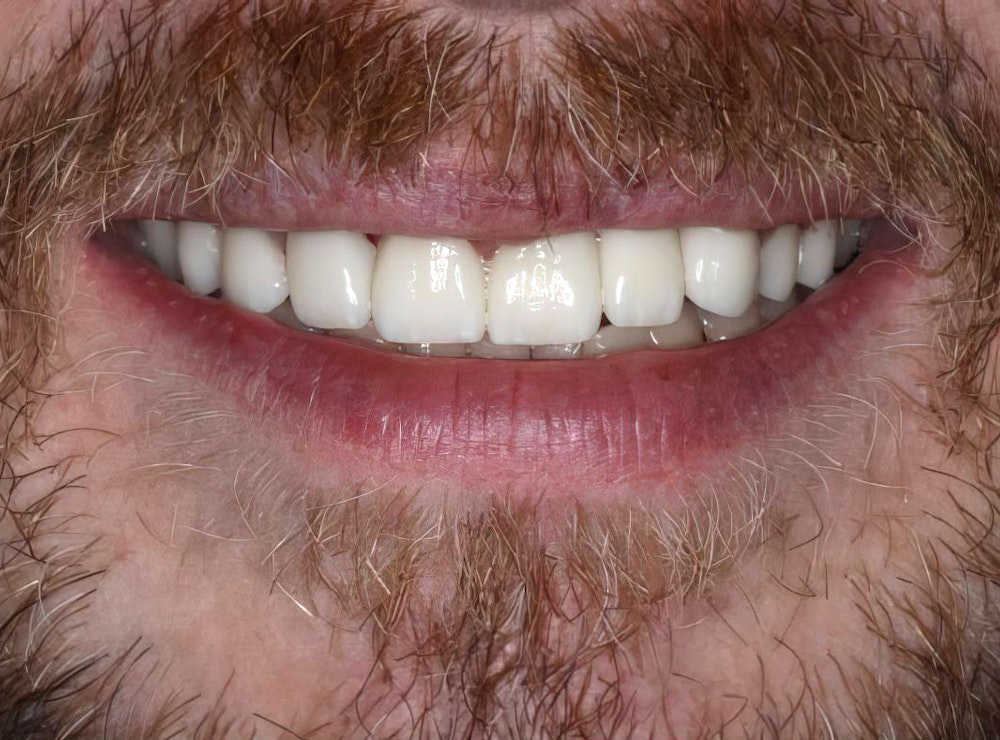Cosmetic Dentist | Charlotte
Artistry in
Every Smile
- State-of-the-art tech
- Personalized care and attention
- Artistry meets expertise
- Virtual cosmetic consultations




Your Smile, Our Craft
At Southview Dentistry, we combine expert care, advanced technology, and artistry to create beautiful, functional smiles. Our goal is to transform lives with personalized, lasting results.
Real Patient, Real Smile

“After a fainting spell left me with damage to my teeth, I was worried I would never get back to the smile I once had. Dr. Kelly truly took her time to address my concerns and help me feel at ease... She did an outstanding job, and because of her, I can smile comfortably again today. I would never trust anyone else with my teeth— she is truly the best!" - Katie






Start Today
Schedule an Appointment
We know that you have options when it comes to dental care in Charlotte. We'd love the opportunity to show you why so many patients choose us to optimize their smiles. We believe that our personal touch is what makes us stand out, and we are dedicated to listening to our patients to help them achieve outstanding oral health, a gorgeous smile, and genuine confidence.
If you are searching for a new dentist in Charlotte, NC, we want to meet you. Request an appointment using our online form, or call our office today.

Free Virtual Cosmetic Consultations
If you're considering a cosmetic upgrade, send us some selfies and explain your goals and concerns via the Smile Virtual app. Next, you'll get a personalized video from our dentists explaining a proposed treatment plan. If you like what you hear, the next step is an in-office consultation.
Meet Our Charlotte Dentists
Our husband-and-wife team constantly elevates their knowledge and skill through continuing education. They take courses at Spear Education, attend local study clubs, and complete hands-on training at the Spear Center, SmileTrend Institute, and the Breathe Institute to enhance their cosmetic dentistry skills.



Dr. Micheal Wilson
Dr. Micheal Wilson, a Kings Mountain, NC native, earned his DDS from the University of North Carolina at Chapel Hill, where he received the Board of Governors Scholarship. He gained six years of oral surgery experience immediately following graduation. Along with providing surgical treatment, Dr. Micheal loves enhancing smiles through cosmetic dentistry.

Dr. Kelly Wilson
Dr. Kelly Wilson, a Charlotte native, earned her DDS from UNC Chapel Hill. With over 15 years of experience, she provides compassionate care for all ages. Dr. Kelly continually advances her expertise through the Spear Institute and as an Ambassador for The Breathe Institute. She focuses on cosmetic dentistry, myofunctional therapy, and comprehensive care, including Invisalign.

New Patient Appointments
First-time patient appointments include all X-rays, a complete exam, and teeth cleaning. We can apply your insurance benefits to the cost of your first appointment, or join our membership club for an immediate discount on the $465 fee-for-service rate.






Featured Procedures
Veneers
Veneers are thin, custom-made shells placed over the front surfaces of teeth to improve their appearance. This popular cosmetic dentistry treatment can enhance the color, shape, size, and alignment of your teeth, giving you a natural-looking upgrade.



Dental Implants
Dental implants are a great solution for missing teeth, providing the ultimate foundation for crowns, bridges, and dentures. Dr. Micheal performs complete dental implant treatment, from placement to restoration, ensuring a seamless and beneficial result.



Invisalign
Invisalign® uses clear, custom-made aligners to straighten teeth discreetly and comfortably. It’s a convenient way to achieve a beautiful, confident smile without the need for traditional metal braces.



Comprehensive Services for All Your Smile Needs
- All-on-4 Dental Implants
- Botox
- Bruxism Treatment
- Ceramic Restorations
- Clear Aligners
- Dental Bonding
- Dental Crowns
- Dental Exams
- Dental Cleanings
- Dental Implants
- Full Mouth Reconstruction
- Gingivitis Treatment
- Gum Disease Treatment
- Invisalign
- Myofunctional Therapy
- No Prep Veneers
- Smile Makeover
- Teeth Cleaning
- Teeth Whitening
- TMJ Treatment
- Tooth-Colored Fillings
- Tooth Extraction
- Veneers
- Wisdom Teeth Removal
Real Patient, Rave Review

"Getting veneers seemed like such a scary, looming process prior to talking it through with Dr. Kelly. She was on top of the latest trends, super educated and capable, and made me feel comfortable and at ease during the procedures. I'm so glad I made the investment! It's had such a positive impact on my day-to-day -- I have so much more confidence and I no longer have to think twice before smiling or laughing. It's been such a blessing!" - Marley




